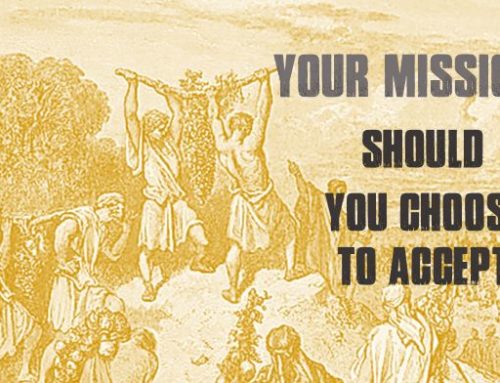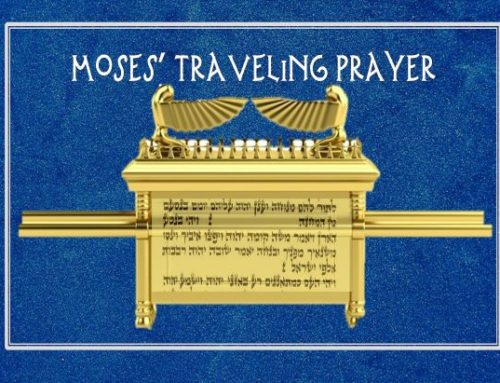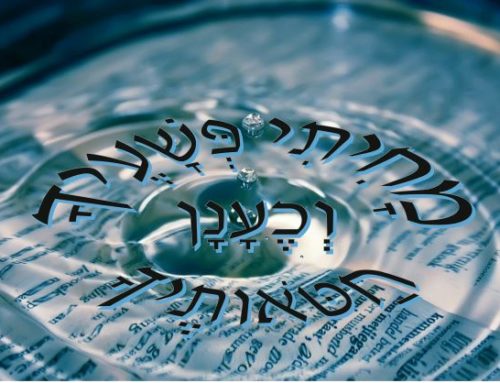Torah Portion Korah, Numbers 16.1—18.32, Haftarah, I Samuel 11.14-12.22
“Tell Eleazar, the son of Aaron the priest, to pick up the censers out of the blaze, for they are holy, and scatter the fire some distance away. The censers of these men who sinned against their own souls, let them be made into hammered plates as a covering for the altar. Because they presented them before the Lord, therefore they are holy; and they shall be a sign to the children of Israel.” Numbers 16.37-38 NKJV (In Hebrew Num. 17.1-3)
Korah, Dathan, and Abiram, along with two-hundred- and fifty-men holding incense censors rebelled against the Lord to usurp the leadership of Moses and Aaron. Yet, I am captured by God’s assessment. Against whom had they sinned? Moses? God? No, the Lord said, “these who sinned against their own souls”. What is a soul? How does one sin against their soul?
What is Our Soul?
In Hebrew, several words describe our soul. Generally, the soul is called nephesh, but the nephesh is also made up of the neshamah (breath) and ruach (spirit) each revealing a different aspect of the soul. In New Testament Greek, the soul is called the psuchē. Psychology, the study of the psuchē, as noted by some, is not exactly the study of the mind, but of the soul.
John Ortberg, in his book “Soul Keeping: Caring for the Most Important Part of You”, tells the story of an Alpine village fed by a mountain spring. High above, on the pristine snowcapped mountain, lived the “keeper of the spring”. One day financial difficulty hit the village. The elders decided money could be saved by not paying the “keeper of the spring”. At first nothing changed. Gradually sticks, debris, and animal waste fell into the stream. The water became murky, and the village experienced sickness and ill health. Realizing their mistake, the village again invested resources to the “keeper of the stream”. Ortberg aptly summarizes, “The stream is your soul, and you are the keeper.”
Soul and our body, in this life, are intimately connected. The Gnostics, an ancient heretical group, believed sins of the body could not contaminate the soul and so they indulged their flesh. They did not realize that their fleshly lusts were warring against their very soul! (I Pet. 2.11) The Lord calls us to consider the value of our souls in light of eternity and ask, for whom was our soul made, and who is the shepherd of our soul?
I. The Eternity of our Soul
“And do not fear those who kill the body but cannot kill the soul. But rather fear Him who is able to destroy both soul and body in hell.” Mathew 10.28 NKJV
Yeshua gave us a great window into the existence of our soul after physical death. The Sadducees in Yeshua’s day did not believe in the resurrection of the body. They attempted to trick Yeshua with a riddle about a woman who had seven husbands. They asked, “which of these seven men would be her husband in the world to come?” Their true purpose was to disprove the resurrection in the world to come. Yeshua proved from Scripture that our souls continue to live after the body is destroyed.
“But concerning the resurrection of the dead, have you not read what was spoken to you by God, saying, ‘I am the God of Abraham, the God of Isaac, and the God of Jacob’? God is not the God of the dead, but of the living.” Mat. 22.31-32 NKJV
Where is Abraham now? His body is buried in Hebron, yet Abraham’s soul lives. God is the God of the living! Yeshua warned us to, “not to fear the one who can kill the body”. Why? Because a person cannot kill the soul. Rather, we should fear God who can kill the body and punish the soul in hell. Yeshua did not teach annihilation of the soul in this verse, He warned that the human soul can be lost in hell.
A Soul in Hell
In fact, Yeshua pulled back the veil of eternity to reveal the lostness of a soul in hell suffering torment. This soul retained the memory of who he was, others he had known, and even loved ones still alive – yet he was lost in hell. This man, like those who rebelled against Moses, sinned against his own soul. But not only is our soul eternal, it is inestimably valuable.
II. The Value of a Soul
“For what profit is it to a man if he gains the whole world, and loses his own soul? Or what will a man give in exchange for his soul?” Mat. 16.26 NKJV
I love to hunt for rare Hebrew books. Sometimes people sell them for very little because not knowing their value. Do we know the value of a soul? What is the value of a soul to God? Yeshua asked, “what will a man give in exchange for his soul?”
To understand its value we must ask, from what is a soul made? I also collect special Israel mint coins. These coins are struck with the same design in gold, silver, and bronze. I only buy the bronze. Can you guess why? You likely guessed right. Gold and silver are expensive, and the same design is stamped on the bronze. From what material is a soul made? The answer to this was revealed at creation.
“And the Lord God formed man of the dust of the ground, and breathed into his nostrils the breath of life; and man became a living being.” Gen. 2.7 NKJV
Our bodies come from the dust and return to the dust. Our soul was made from the breath of God (neshimah) and belongs to God and returns to God. What will God give in exchange for a man’s soul? It might surprise you that he loves you so much that gave the greatest treasure of heaven to redeem us, His own Son! (John 3.16)
III. The Love of Your Soul
“Jesus answered him, “The first of all the commandments is: ‘Hear, O Israel, the Lord our God, the Lord is one. And you shall love the Lord your God with all your heart, with all your soul, with all your mind, and with all your strength.’ This is the first commandment.” Mark 12.29-30 NKJV
Your soul is designed to love God. Unlike the Gnostics, who distinguished between their body and soul, God calls us to love Him with undivided affection from all our heart, all our soul and all our strength.
In this life, all of our being is required to “love the Lord our God”. Our soul needs the body to be fully engaged loving God, and the body needs our soul to be fully engaged to connect with God.
What must we do to be “keepers of the stream”? The Apostle Peter has given us some admonitions for caring for our soul.
1. Purify your soul through Obeying Truth
“Since you have purified your souls in obeying the truth through the Spirit in sincere love of the brethren, love one another fervently with a pure heart.” I Pet. 1.22 NKJV
2. Purify your soul in Abstaining from Fleshly Lusts Warring against our Soul
“Beloved, I beg you as sojourners and pilgrims, abstain from fleshly lusts which war against the soul.” I Pet. 2.11 NKJV
Finally, let us look to the Shepherd of our soul.
IV. The Shepherd of our Soul
“For you were like sheep going astray, but have now returned to the Shepherd and Overseer of your souls.” I Pet. 2.25 NKJV
Not far from where I write this, stands the 19th century home of Horatio G. Spafford, follower of Yeshua and hymnwriter who lived in Jerusalem. Today, his home is the expensive American Colony Hotel. One Christmas season I went there to see the decorations. Within the richly tapestried lobby, a glowing fireplace warmed the room. Soon a well-dressed tourist came and sat near my wife and me. I asked her if she knew the story of the man who built the home. She said no, and so I relayed the faith filled story of Horatio G. Spafford who suffered great loss yet found great peace. His home and business in America were destroyed in the great Chicago fire of 1871. In 1873, he sent his wife and daughters on a ship to Europe, intending to soon follow. Over the Atlantic their ship went down. His wife cabled him these tragic words, “Saved alone what shall I do?”.[1] He boarded a ship to his grieving wife and asked the captain to wake him when they were over the spot where his daughters drowned. On the deck of that ship, he scribbled words which became one of the greatest Hymns of the time. “It is Well With My Soul”. Those words, in Spafford’s own hand, hung nearby on the wall. With permission, I sang the hymn to the tourist as a witness to God’s care for our soul even in our greatest trials.
When peace, like a river, attendeth my way,
When sorrows like sea billows roll;
Whatever my lot, Thou hast taught me to say,
It is well, it is well with my soul.
My sin—oh, the bliss of this glorious thought!—
My sin, not in part but the whole,
Is nailed to the cross, and I bear it no more,
Praise the Lord, praise the Lord, O my soul!
And Lord, haste the day when the faith shall be sight,
The clouds be rolled back as a scroll;
The trump shall resound, and the Lord shall descend,
Even so, it is well with my soul.
Refrain:
It is well with my soul
It is well, it is well with my soul.
Conclusion
Spafford found peace amidst tragedy. He recognized that God was the shepherd of his soul. And so, I ask again, how is it with your soul? Have you considered its eternal value? What about the souls of those around you? Its value is so great that God’s own Son gave His life to redeem your soul! The material of a soul comes from the breath of God, and that very breath within you is calling to its Creator. One day our soul will be required of us, and we must give an account. How is it with your soul? Are you sinning against your soul, or are you the “keeper of your soul”? I encourage you today to find peace the place where you can say, “It is well with my soul”. That “soul peace” is found in loving God, not only our bodies but also our soul. May Yeshua, the Shepherd and Overseer of your soul give you peace.
Shavuah Tov from Zion
[1] Telegram from Anna Spafford to Horatio Gates Spafford re being “Saved alone” among her traveling party in the shipwreck of the Ville du Havre | Library of Congress (loc.gov)




